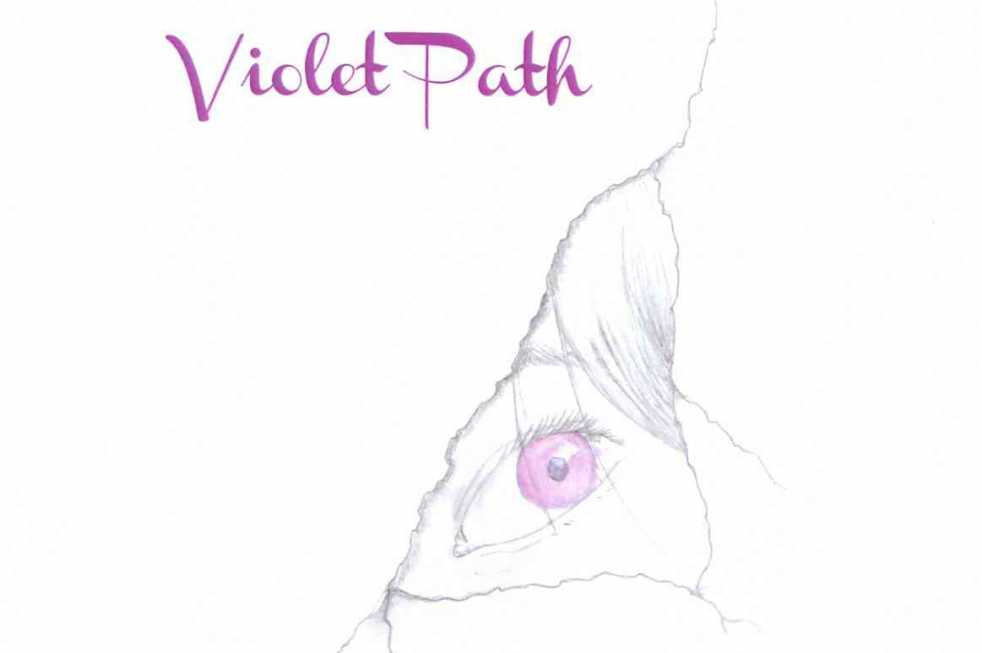An environment like Tech, which churns out professional engineers and computer programmers with gusto, would seem like one of the last places that an aspiring science fiction writer would find herself. Yet freshman Olivia Lodise, who recently published her first sci-fi novel, is a student here nevertheless.
Lodise’s debut book, entitled Violet Path, belongs to the somewhat specific category of dystopian coming-of-age stories. This brand of novel, popularized by previous works such as The Giver, Uglies and The Hunger Games, seems to recently be suffering from a repetition of plot devices (usually appearing in the form of wannabe Hunger Games spinoffs) that cannot help but make it seem like the genre is going the way of vampire tropes; insert dead horse, proceed to beat. Violet Path does its part to both support and oppose this trend.
The tale is told from the standpoint of fifteen-year-old Alexia, a young girl living in the Community (a sort of nation-city) of Tamizeh. Readers discover early on that Alexia does not fit in with the rest of the populous; specifically, her black hair and violet eyes set her apart from the clone-like appearance of the other inhabitants of her home.
She, like every other youth her age, is raised to believe that Tamizeh emerged out of the ashes of the Third World War as a beacon of morality and reason, and is fighting the good fight to unite its neighbors under one rule. However, the Community’s focus on a military regime makes Alexia doubt its true intentions. Her suspicions are confirmed when she is kidnapped by Tamizeh’s violent leader, Matthew, and thrust into an institution designed to turn her into a ruthless warlord. Alexia eventually escapes to the outside world, where she ultimately uncovers truths about both Tamizeh and herself.
As far as story is concerned, Violet Path does not exactly experiment with new ground. The plot resembles that of many dystopian novels: the protagonist grows up in the midst of a “privileged and peaceful” community, the protagonist uncovers the dastardly design of said community, the protagonist escapes said community.
There is a lack of subtlety in Lodise’s prose that is somewhat uncomfortable at first.
Alexia is certainly memorable as equal parts firebrand and insecure teenager, but the same cannot be said for many other characters in the novel. These factors, along with the inclusion of a conventional romance and a villain that is about as believably human as the Terminator, do their part to take away from the book’s originality and maturity.
What Violet Path does handle well is emotion. Essentially, there is a lack of subtlety in Lodise’s prose that is somewhat uncomfortable at first; several characters start yelling frustrated dialogue at the drop of a hat. However, as the novel progresses, readers may begin to realize that the sentimental rawness fits in well with the harsh setting of the novel, providing a satisfying amount of tension.
The interesting employment of futuristic gadgets, such as an anti-gravity ring that powers floating vehicles, also deserves a tip of the hat as far as creativity goes. Working within the practically infinite bounds of the science fiction genre, it is good to see that Lodise can stretch the imagination of the reader with her story, while still providing explanations that are congruent with the story.
Overall, any inconsistencies within the novel’s contents notwithstanding, Lodise should be applauded for publishing a book during her high school career; that feat alone warrants it a glance by any student, especially those at Tech who seek a different creative outlet than the predominantly digital-based ones available on campus.
Violet Path is, at its heart, simple escapist fantasy. Yes, it does the same things that many of its contemporaries do, but that is not to say it is unenjoyable; it is just a light romp and should be taken with a grain of salt.
